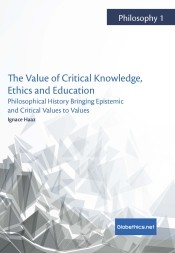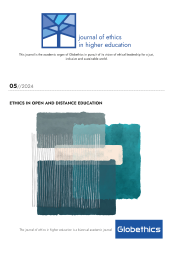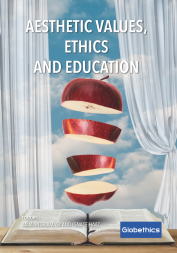The Value of Critical Knowledge, Ethics and Education
Abstract
This book aims at six important conceptual tools developed by philosophers. The author develops each particular view in a chapter, hoping to constitute at the end a concise, interesting and easily readable whole. These concepts are: 1. Ethics and realism: elucidation of the distinction between understanding and explanation – the lighthouse type of normativity. 2. Leadership, antirealism and moral psychology – the lightning rod type of normativity. 3. Bright light on self-identity and positive reciprocity – the reciprocity type of normativity. 4. The virtue of generosity and its importance for inclusive education – the divine will type of normativity. 5. Ethical education as normative philosophical perspective. The normativity of self-transformation in education. 6. Aesthetics as expression of human freedom and concern for the whole world in which we live.




